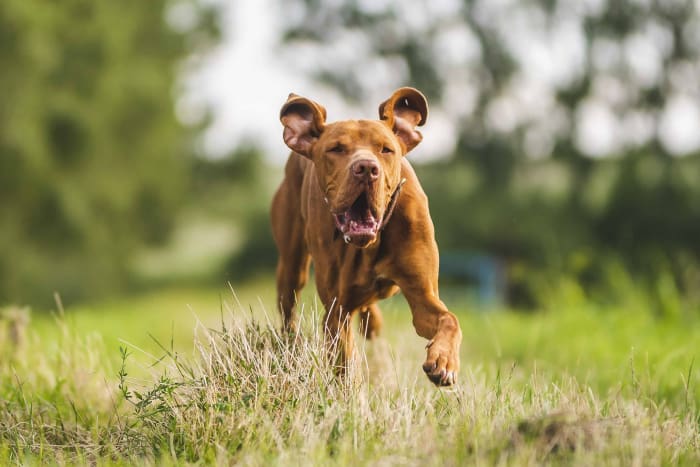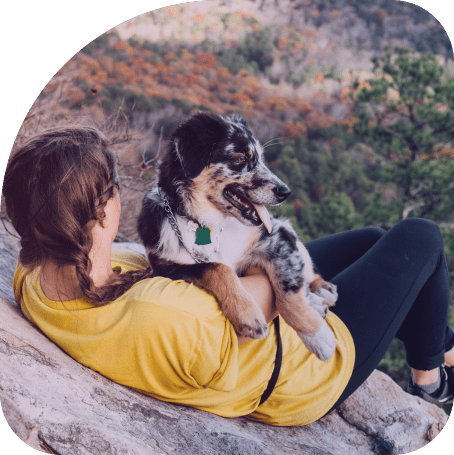Do you find your dog often barking uncontrollably in the backyard? Don’t worry, you’re not alone. Dogs love to bark and react to different stimuli, especially when they’re outside on their own. Rest assured, you can teach them to be calmer and have more self-control in that space. Here’s how!
Step 1: Join them in the yard
The first step is to join your dog in the backyard every time they want to go out. To set yourselves up for success, plan ahead and keep the following things ready by the back door:
- Extra collar and leash
- Extra pair of shoes
- Spare umbrella (in case it’s raining)
- Jacket
- Dog poop bags
- Toys and treats
For the next four weeks, your dog should never go into the backyard alone. They’ll always be on a leash and with you (or someone else in the house). Take them outside to go potty and spend a few extra minutes playing or training with them. This way, they’ll start associating the backyard with positive experiences.
Step 2: Be consistent
Consistency is key to changing your dog’s association with the backyard. Don’t get lazy and let them out on their own once in a while, or you’ll undo all the work you’ve put in. Follow our Golden Rules for success, which you can find in the Golden Rules section of your ReadyDog membership. (Don’t have one yet? Get started here)
Step 3: Praise and communicate
When you’re outside with your dog, be present and attentive. Praise them for going potty, and clearly communicate what’s next. For example, say “Good girl, Fido! Let’s go back inside” or “Good girl, Fido! Go get your treat!” and scatter some treats in the grass and play tug or fetch to keep your dog engaged.
Step 4: Watch your dog’s body language
Watch your dog’s body language when you’re outside with them. If you notice that their ears perk up or they seem to notice or begin paying attention to something they might bark at, you mark with ‘yes’ and do a treat toss into the grass/pavement. Then cue them to follow you back inside while you gently lead them back in on-leash. With consistency and repetition of this sequence of events, they can learn to hear a noise and then turn to look at you instead of hearing a noise and then barking at it.
Step 5: Be proactive
Bring your dog inside proactively before they get bored and start barking. Barking in the yard is often a dog feeling bored or thinking it is their job to defend and protect your property. Take that job away from them and let them learn that it is not their responsibility. Instead, help them learn some new associations with that space, and let those associations be about spending time with you, having fun, and practicing calmness and self-control.
Remember, your dog’s behavior won’t change overnight, but with patience and consistency, you can help them become calmer and have more self-control in the backyard. Good luck!



